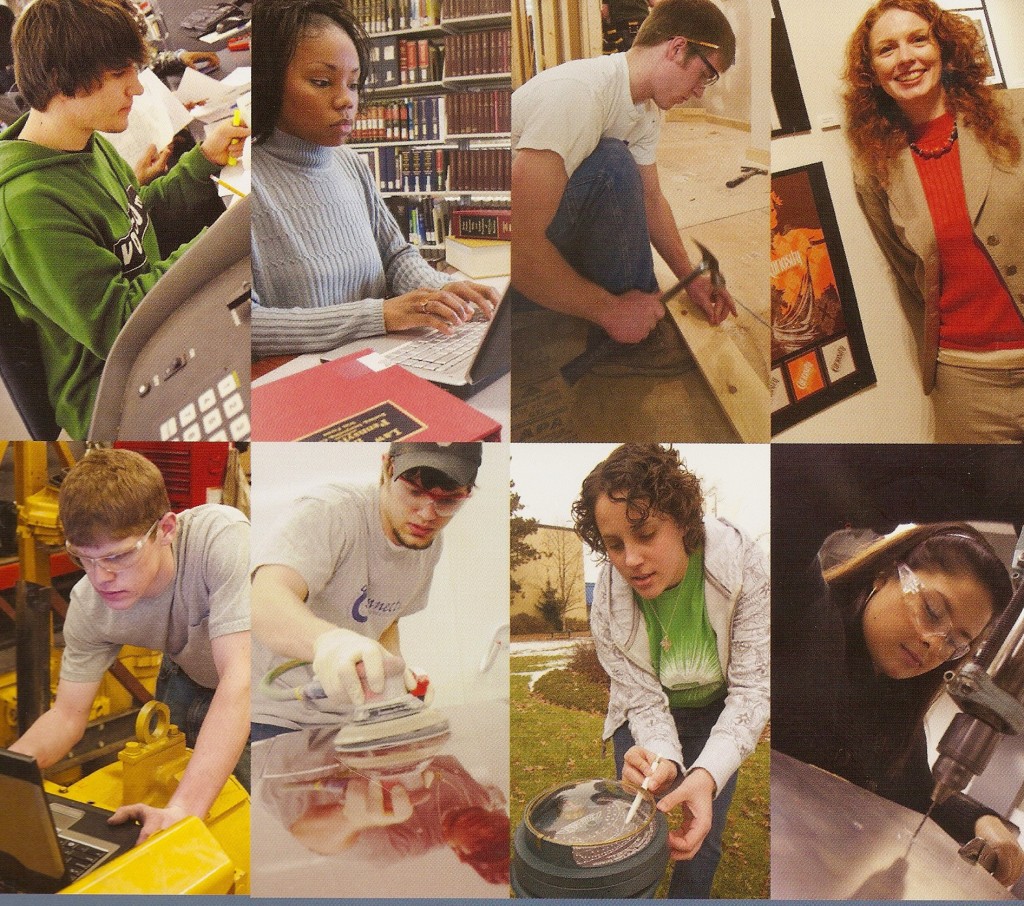
I published this article about five years ago, but I feel it’s content is still true today. Too many parents push students to go to college when they are not prepared either academically, emotionally or financially. So many students go and fail because college is simply not for them.
_____________________
I read an article a few years ago in The Atlantic: “In the Basement of the Ivory Tower“, that gave me some food for thought. It’s been on my mind for quite awhile, especially since I have a close friend who is a financial aid counselor at one of those infamous “for profit” colleges.
She would answer my leading question with a loud and emphatic, “NO”, based on her experience dealing with those who are not prepared to attend college and don’t understand the consequences of borrowing money they can’t pay back. They have been convinced that without a college education, they can’t get a job or pursue a career. They’ve been told by someone that it doesn’t matter how much money you borrow as long as you get that degree. Once you get that degree you can earn enough money to pay back what you’ve borrowed. But we all know that’s not often the case.
In the above mentioned article, the English professor makes an interesting point:
America, ever-idealistic, seems wary of the vocational-education track. We are not comfortable limiting anyone’s options. Telling someone that college is not for him seems harsh and classist and British, as though we were sentencing him to a life in the coal mines. I sympathize with this stance; I subscribe to the American ideal.
Sending everyone under the sun to college is a noble initiative. Academia is all for it, naturally. Industry is all for it; some companies even help with tuition costs. Government is all for it; the truly needy have lots of opportunities for financial aid. The media applauds it—try to imagine someone speaking out against the idea. To oppose such a scheme of inclusion would be positively churlish.
I’ve come to realize that Americans truly are snobs. We brag about what we have and what we have obtained. Like it or not, we are a classist society. We snub our noses at those who haven’t been to college and brag heavily about our numerous degrees as if they are badges of honor. And while graduating from college is an accomplishment, so is learning a trade.
Often, we push our kids to attend college when we know it’s not for them. Why? Because we are a society that measures success by the number of degrees hanging on a wall or the dollar signs that can be found on our bank accounts. It is noble to dream big and education is always a noble goal. But so is being a plumber, a carpenter, a cosmetologist or a civil servant like a police officer or fireman.
What’s my point? My point is that you need to know your child. If they want to go to college and have the skills and knowledge they need to be successful there, then encourage them to go. But if they aren’t interested or motivated, save yourself some heartache, disappointment and money by letting them pursue a trade or career and even consider a college that offers both. There are so many fabulous careers out there that they can do without higher education. You will be happier, they will be happier and they will fill an important role in society. College really isn’t for child.









